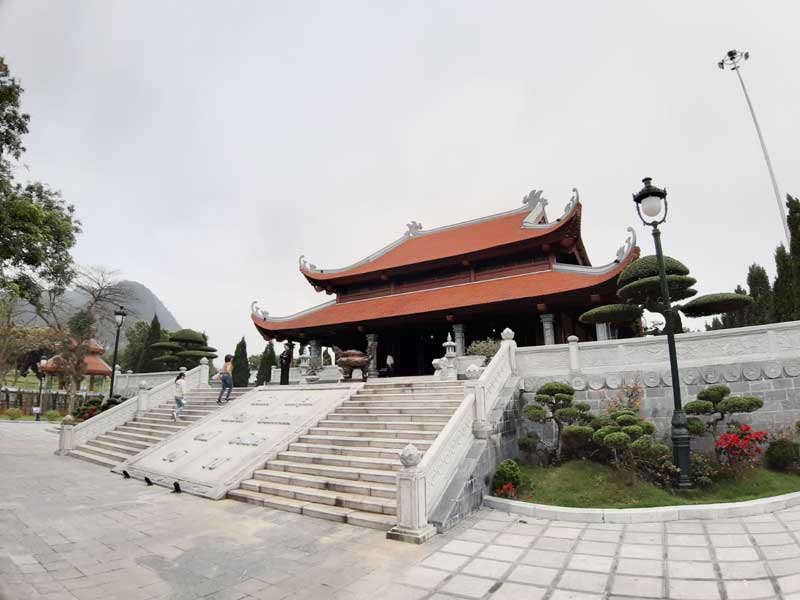
(HBO) - Lac Thuy district in the northwestern province of Hoa Binh boasts advantages and potential for developing diverse types of tourism. Located along the poetic Boi River with beautiful natural landscapes and majestic mountains, Lac Thuy has become attractive to visitors.

A commemorative house for people with meritorious services and
staff and workers of the first money printing
plantof the revolutionary government of Vietnam in Lac Thuy district.
La Thuy is home to six national relic sites, 12 provincial-level relics,
and 29 relic sites listed in the provincial People's Committee's inventory
decision. The district organizes 32 traditional festivals every year, with two district-level
ones.
The
money printing
plant in Lac Thuy, which is the first establishment of this kind in Vietnam, was recognized
as a national relic site in 2007 by the Ministry of Culture, Sports and
Tourism. The relic site has contributed to
educating young people about the revolutionary and patriotic tradition and sense
of national self-reliance.
Meanwhile, Niem mountain cave in Phu Thanh commune was recognized as a
national relic site in 2014.
Tourism and services have been identified as the important economic sectors in the district’s economic structure. Besides activities
to promote its potential, the local authority has completed a tourism development planning scheme, which focuses on improving the business and investment environment, and attracting investment resources to develop
tourism and services.
Since 2015, ten tourism infrastructure projects worth nearly 452 billion VND have been built in
the district, including important
works such as tourism infrastructure facilities in Lac Thuy district, a commemorative house for people with meritorious services and staff and workers of the money printing
plant, aschoolofsouthern ethniccadres, and a project to
upgrade Tien pagoda.
The district also welcomed tourism
development projects such as Dong Tam resort complex, Da Bac village
eco-tourism project, and Huong Binh cable cabin line in Phu Nghia commune,
among others.
Many tourist areas in the district have become attractive destinations
for domestic and foreign tourists, contributing to promoting the province’s tourism
industry.
Statistics show that the total number of travelers
visiting tourist destinations in the district reached over 3.37 million in the last five years,
mainly domestic tourists./.
Located just a 20-minute drive from Hoa Binh City, Ora Hill Farmstay & Glamping Hoa Binh is a captivating new destination nestled in Mo hamlet, Bình Thanh commune, Cao Phong district. Combining farming with leisure, this tranquil retreat is perfect for those seeking balance, joy, and an immersive experience in the expansive beauty of nature.
Muong Bi - Tan Lac is renowned as one of the four famous Muong regions in Hoa Binh province. Blessed by nature with a favourable climate and stunning landscapes, Tan Lac holds great advantages for tourism development. The local tourism industry has made remarkable strides in recent times thanks to the attention and support from the local authorities and sectors.
With its strategic location, well-developed transport network, and diverse soil and climatic conditions, Hoa Binh is emerging as a must-visit destination in Vietnam's northwestern tourism corridor. The province boasts numerous attractions, including the Kim Boi hot springs (Kim Boi district), the Dau Rong cave complex (Cao Phong), the Mai Chau valley (Mai Chau), and the iconic Hoa Binh hydropower plant.
The northern mountainous province of Hoa Binh has been listed among the 71 most beautiful places to visit worldwide by the prestigious US travel magazine Condé Nast Traveller.
Hoa Binh province’s rich natural and cultural resources position it as a prime location for developing community-based tourism (CBT). In recent years, support from central and provincial policies, as well as assistance from non-governmental organisations, have encouraged local ethnic minority and mountainous communities to actively engage in the sector.



